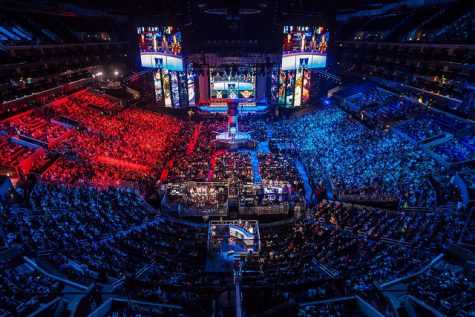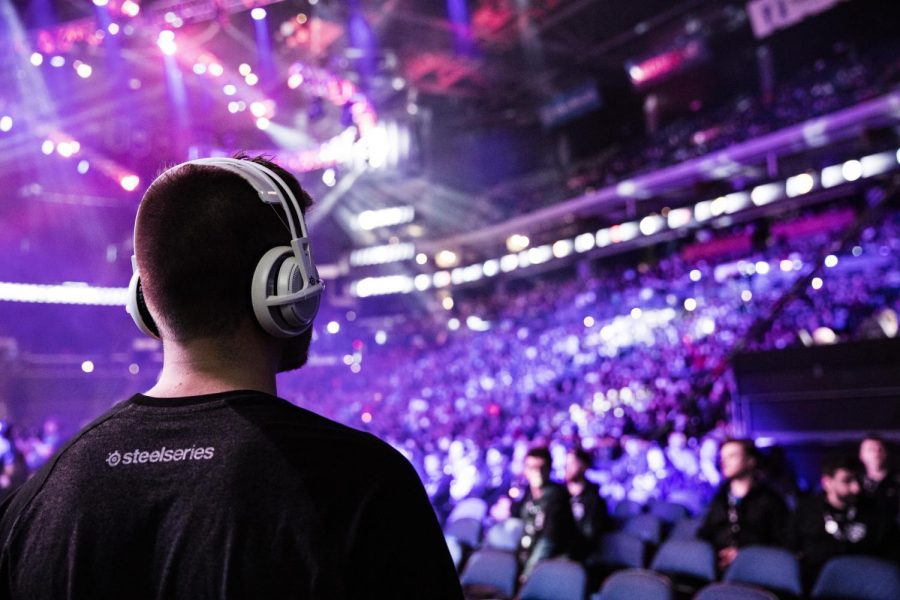Higher education institutions should offer esports scholarships
SteelSeries // FLICKR
The universe of esports mirrors that of popular physical sports; in both there are competition, prize money and a large fanbase. However, the key element of esports scholarships remains largely overlooked by higher education institutions, inhibiting the growth of this sector of spectator sports.
April 6, 2019
Since the 1970s, students all over America are awarded athletic scholarships for excelling sports and academic scholarships for excelling in academia. The best these scholarships often pay for a part of, or even all of, students’ college tuition. Athletic scholarships, in particular, help student-athletes in being accepted into major sports leagues, such as the National Football League, the National Basketball Association and many more.
Recently, a few colleges have offered scholarships for being exceptional at video games. In other words, students are awarded esports scholarships, and this is a step in the right direction.
The term “esports” can mean any form of competitive gaming, which usually manifests in the form of huge and international tournaments such as those of “League of Legends,” “Overwatch,” and “Counter-Strike: Global Offensive.”

Unfortunately, fewer than 10 colleges in America offer such scholarships, according to www.scholarships.com. This is unacceptable because esports have been growing substantially in popularity; in fact, according to Syracuse University’s Whitman School, esports will collectively have about 500 million fans by 2020.
The prize pool and popularity associated with professional esports gameplay is also substantial. According to Christopher Ingraham with the Washington Post, “DotA 2”’s 2018 International had a total prize pool of $25.5 million, while the 2017 League of Legends Championship observed a peak viewer count of 106.2 million.
These hard facts say one thing: esports play a decently large role in our economy today. There should be no excuse claiming that esports don’t earn corresponding scholarship opportunities.
Some may say that students shouldn’t be awarded scholarships for video games because they encourages sedentary lifestyles and the development of unhealthy habits.
While this may be true for some individuals, it is still generally invalid: by this logic, students shouldn’t have football scholarships due to their similar risk of physical harm. Though it may have a highly sought-out scholarship in the eyes of many, it also sees 8.1 injuries per 1,000 exposures (games and practices combined), with 7.4 percent of these injuries being head injuries such as concussions, which can lead to permanent brain damage if repeated multiple times (NCAA 2004-2009 official report). If dangerous sports such as football can earn student scholarships, why can’t esports (which are arguably less harmful)?
Overall, there is no justification for the observation that esports scholarships are currently only limited to fewer than 10 colleges. Esports are growing at an exponential rate, and just as students are awarded scholarships by performance in popular sports, students should also be given more esports scholarship opportunities.
To help encourage more colleges to offer students esports scholarship opportunities, we can spread this knowledge via social media and forum websites such as Reddit. These efforts will help transfer the message to colleges, which, in pursuit of bringing the best to their students, will implement more esports scholarship opportunities.


